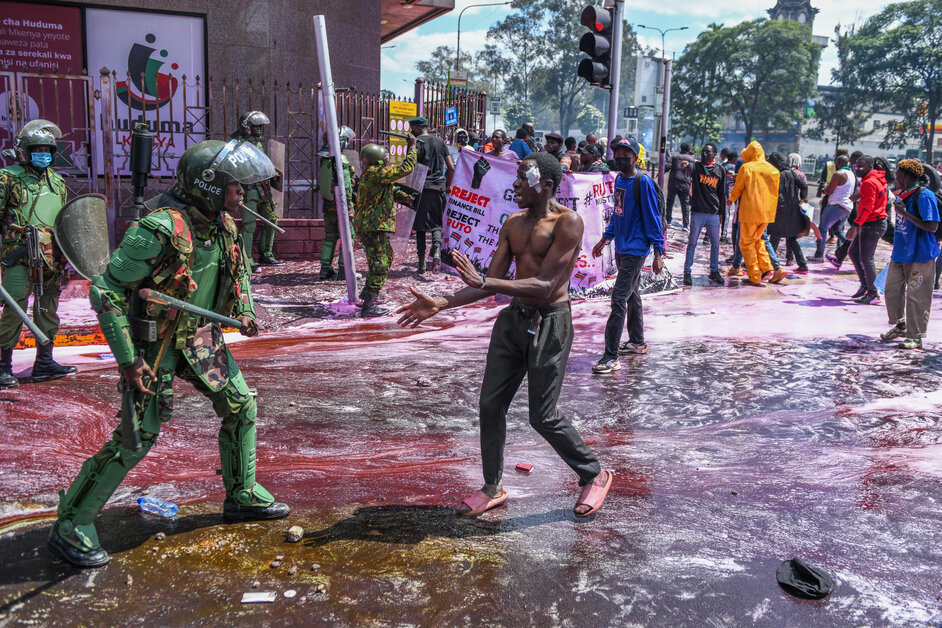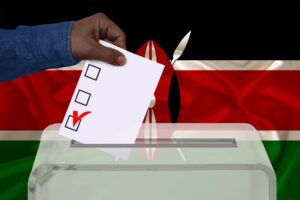There are two times when wise people avoid making decisions: when they are too angry or too excited. Kenya has ignored both. In the wake of police shootings and rising national frustration, the introduction of a bill to limit demonstrations is not only untimely but also dangerous.
The proposed law by Nairobi Woman Representative, my friend Esther Passaris, aimed at regulating protests, arrives amid national grief. A young Kenyan has died in police custody, others have been abducted, and one was shot dead on the street. Now, with fresh wounds still bleeding, we are being asked to criminalize the very act of demanding justice.
This is not how wise nations act. You don’t solve a crisis by creating another one. The law must never silence the citizen; it must safeguard both free speech and order, regardless of who is in power. Today, it might be the people protesting. Tomorrow, it could be those in power begging to be heard. What if picketing targets the police themselves? Who then protects the protester?
In Kenya, the core problem is evident. We seldom reform unless we face a threat. And even then, we often pass laws to protect fear rather than fairness. The Pasaris bill seems less like a genuine public service response and more like panic. It looks designed not to defend the Constitution but to shield those in power from scrutiny.
Amid the noise, Kenya’s Generation Z has become the country’s unlikely moral compass. They see what many pretend not to: Cabinet and Principal Secretaries chasing 2027 votes while hospitals struggle, schools decay, roads stall, and public trust erodes. And in the midst of it all, they see a President working alone, surrounded by loyalists but weighed down by betrayal.
At this crucial moment, a voice of calm intelligence has emerged. Former Director-General of the National Intelligence Service, Brigadier (Rtd) Wilson Boinett, has provided Kenya with a significant memoir titled Fixing Spy Craft to Serve National Interests in Kenya.
I burned the midnight oil to read it and I encourage every policymaker and citizen to do the same.
This is more than just a book. It serves as a sober warning. The Author reminds us that intelligence isn’t about spying; it’s about understanding a nation before it collapses. He led the transformation of the politically misused Special Branch into a respected civilian agency. Through careful reform, he restored dignity to an office that had long been vilified, without seeking praise or recognition.
Equally important, he shifted Kenya’s intelligence priorities from internal suspicion to focus on strategic national interests. His message is clear and impactful. When intelligence becomes politicized, national unity is the first to suffer.
Many Kenyans are now asking: is our intelligence community being listened to? Are our leaders acting on the briefings, warnings, and patterns that have been shared with them? Kenya has already suffered from ignoring intelligence. We have experienced terror attacks, ethnic clashes, and unnecessary social unrest.
We cannot afford to ignore the voices of our intelligence officers. These men and women are not just observers; they are guardians. When their warnings are ignored, the country moves forward in darkness. Leadership becomes reactive. Fear replaces foresight. Laws are enacted in panic, and our democracy suffers.
Parliament must either withdraw or reevaluate the Pasaris Bill. No law should be enacted when trust is broken and justice has not been served.
Let’s elevate the value of intelligence. Not just as a government function, but as a fundamental leadership principle. Let’s honor Brigadier Boinett and his peers by reading, reflecting, and reforming. Like The Art of War, this book should be on every serious leader’s desk.
We must restore respect for our intelligence officers, loyal to the Republic and judged by prevention, not praise. Let us lead with understanding, listen before reacting, and act before blame becomes our excuse. Think green, act green!



